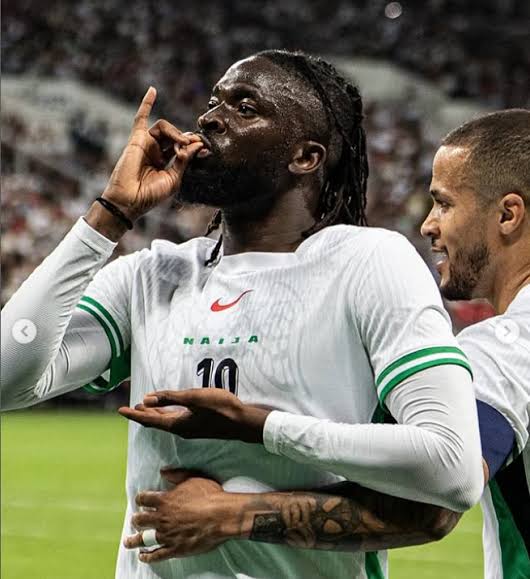
Super Eagles Star Tolu Arokodare Shuns Critics Who Claims He Can't Speak Yoruba Fluently

Nigerian striker, Tolu Arokodare who left the country years ago to chase his professional dreams abroad, now finds himself at the center of controversy after it emerged that he reportedly struggles to speak Yoruba, his native tongue.
What might, in another setting, be a harmless case of language attrition has instead turned into a heated cultural debate. To his critics, the loss of Yoruba feels like a betrayal, a severing of ties to the community that raised him. To others, it is an unfortunate but understandable consequence of living in an environment where English and other foreign languages dominate daily life.
Linguists have long documented the phenomenon: when people relocate to new countries, constant exposure to a new linguistic environment often comes at the expense of native fluency. Known as “language attrition,” it can affect pronunciation, vocabulary, and even basic conversational ability. For Arokodare, it appears years of immersion abroad gradually chipped away at his grasp of Yoruba until it became a shadow of what it once was.
But for the Yoruba community, this is about more than phonetics. Language, especially in Nigeria’s diverse cultural landscape, is a symbol of belonging.
Arokodare’s inability to hold onto Yoruba has been read as a distancing from his roots, a quiet surrender to the forces of assimilation.
The backlash, tinged with both anger and disappointment, reflects how deeply language is tied to heritage, respect, and continuity.
This is not the first time diaspora communities have grappled with the erosion of their mother tongues. Studies in sociolinguistics reveal that second-generation migrants often struggle even more, growing up with passive comprehension of ancestral languages but lacking the fluency to converse. Without structured practice or deliberate teaching, entire generations can become detached from the linguistic fabric of their ancestry.
Arokodare’s predicament, though personal, has become symbolic. It has ignited conversations about bilingual education, heritage schools, and the urgent need for structured language maintenance programs. Research shows that with consistent exposure — speaking Yoruba at home, engaging in cultural events, or attending weekend language classes — attrition can be slowed, if not entirely prevented. For Arokodare, that chance may have slipped away, but for countless other young Nigerians abroad, his story is a cautionary tale.
The footballer himself has not spoken extensively on the matter, but the reactions to his situation tell a bigger story: the tension between global ambition and cultural preservation. In chasing dreams beyond Nigerian shores, many risk leaving behind not just their homes but the very words that once gave them identity.
For now, Arokodare remains under the microscope, his loss of Yoruba dissected as though it were a moral failing. But beneath the outrage lies a sobering truth: language is fragile, and without deliberate effort, it fades. The real question is whether this public reckoning will push Nigerians at home and abroad to take language preservation more seriously — before more voices go silent in their mother tongue.
Watch the video below
Footballer Tolu Arokodare reacts to claims that he suddenly do not know how to speak Yoruba after he got signed by a foreign club pic.twitter.com/YvOBarVN28
— Instablog9ja (@instablog9ja) September 9, 2025


